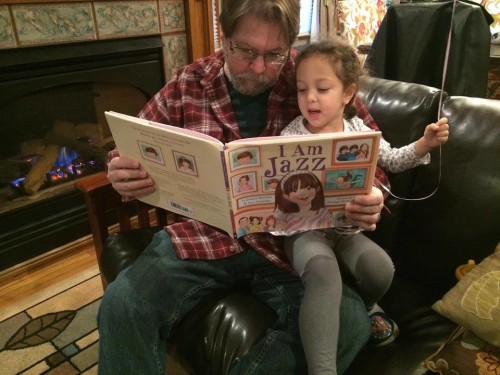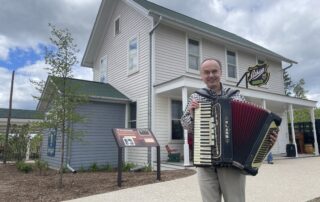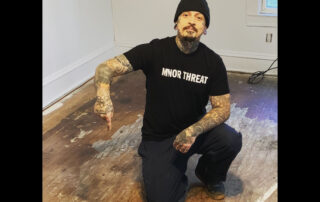A few months ago, a school in Mount Horeb made national news with the selection of a book about a transgender girl. Writer Alex Bledsoe’s son attends that school and he shares what happened when he talked to his son about the controversy.
Recently Mount Horeb, where I live, made national news. A transgender girl attends one of our schools, and when the administration tried to ease her transition by having her first-grade class read the book I AM JAZZ, also about a transgender girl, a Florida-based hate group claiming to represent “concerned parents” threatened the school with a lawsuit.
When I heard about this, my first thought was that, as an author myself, I couldn’t let a book ban stand without speaking out. A so-called “concerned parent” has the right to say, “My child won’t,” but not the right to say, “Your child won’t.” But as it happens, my younger son attends the school in question. He’s a very outgoing kid, and lacks any sort of filter. So when I asked him about it, he said, “So?”
“Well,” I said, “how do you feel about it?”
“About what?”
“About someone saying you can’t read a book.”
“But I can if I want to, right?”
“Yes.”
“Okay.” And he went back to Minecraft.
I pressed on. “But what about the other thing?”
“What other thing?”
“About a boy who feels like she’s really a girl?”
“That’s okay.”
“Really?”
“Yeah. Why wouldn’t it be?”
And once again, his irrefutable logic totally let the air right out of a teachable moment.
I grew up in the Deep South, where this sort of thing would never happen. In my home town, a boy who wanted to live as a girl would not only be bullied in school, but would be publicly ostracized along with her family. She would be denounced from the pulpits of the various churches. The school would certainly make no effort to make her feel safe or comfortable, and would likely consider any bullying to be her own fault.
And to be honest, that’s what I expected here. Mount Horeb is a small town with several churches, and when the school board met to discuss the issue, representatives from some of them spoke out against accommodating the child, repeatedly referring to her as “he” and using discredited science to back up their comments.
But it turned out my son was far more in touch with the town than I was, and that these people were the minority. When the news first hit, the students at the high school held a reading of I AM JAZZ for 200 people. A local parent organized a reading at the library, expecting maybe a handful of people to show up; instead, nearly 600 attended, including many children from the school, friends of the little girl who just wanted to be herself. They, along with the school board, refused to be intimidated either by outside groups, or those voices within the community who spoke against respect and acceptance.
Like my son, when faced with a girl who was a little different, Mount Horeb said, “That’s okay.”
And if I got one underlying lesson from this whole thing, it was this: the kids are alright. Any hate, disrespect or disapproval brought to the situation came from adults. I was proud to be among the crowd at the high school, and the people at the library, showing the world what my seven-year-old son already knew without even thinking about it: “That’s okay.”








